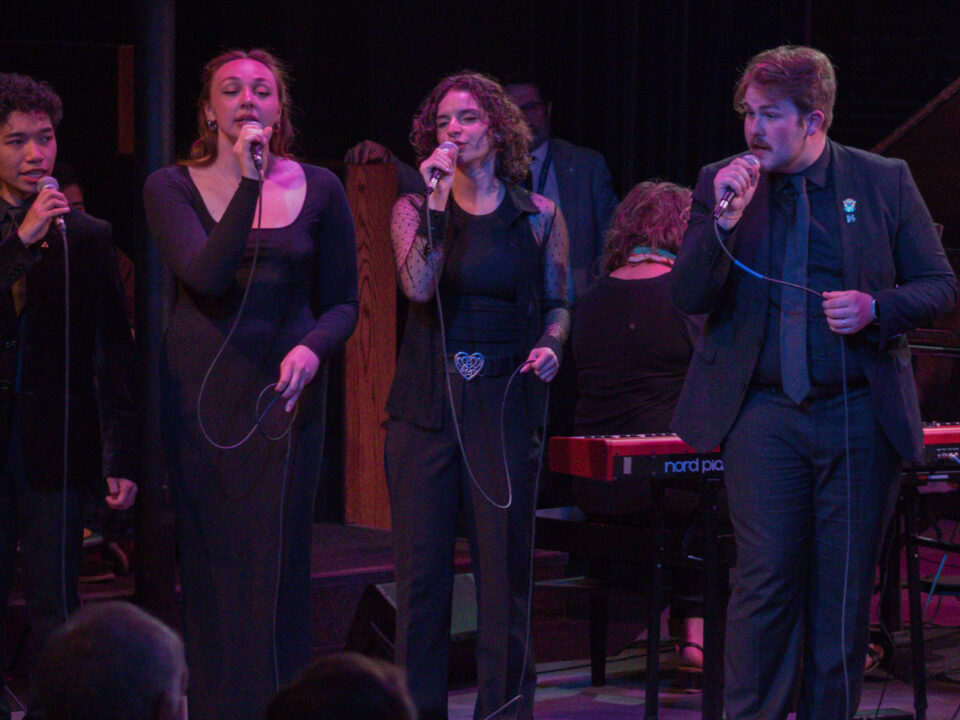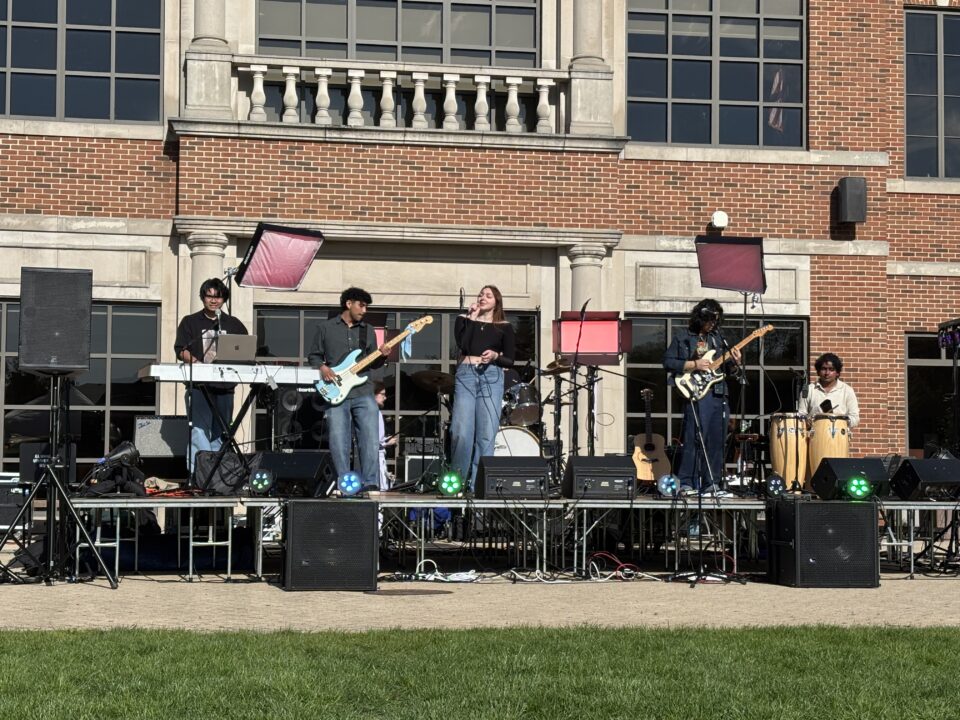War through the eyes of a lens
The shaking blast of a gunshot, the silence of a scream, and the snap of a shutter as a black and white photograph overtakes the screen make A24’s latest endeavor, “Civil War” a truly unique and poignant film.
Set in a near future, “Civil War” follows a group of journalists, Lee (Kirsten Dunst), Joel (Wagner Moura), Jesse (Cailee Spaeny), and Sammy (Stephen McKinley Henderson) as they embark on a journey to reach Washington D.C. to document a monumental turn in the civil war that’s broken out across the nation.
Spoilers Ahead.
“Civil War” truly shocked me with how much I ended up appreciating it, especially with the film director Alex Garland’s history of films like “Annihilation” – which I personally couldn’t take an interest in. However, while the ambiguity drove me crazy in “Annihilation,” it works beautifully in this film.
A purposefully apolitical position is taken in “Civil War,” which easily could’ve been seen as a cop-out or trying to cater to multiple sides. This film makes it clear, though, that politics isn’t the focus. Instead, the focus is on putting the audience in the shoes of a journalist by only sharing basic details about the war that’s broken out. The audience watching is simply to observe as an unbiased outsider, just as the journalists are. With journalism being at the centerfold of this film, there are a lot of powerful scenes surrounding this group; however, one that sticks in my mind is when Lee is walking, scenes of war around her, and she, with an impactful delivery, states how she’s been around the world photographing war as a warning to keep it from happening here. This moment early on in the film shows the true heart of the message, which is the importance of this journalism. It’s one that’s then paired simultaneously with the toll and detachment from this calling that can cause a person to feel. Another standout in this film was how tortuously impactful the sound was.
Throughout this film, I was jumping in my seat and covering my ears as each gunshot blasted. I truly felt brought into the world of this violence. Rather than a typical action piece that glorifies and makes the fighting the most enjoyable part of the film, this movie is honest and shows war and violence as the horrific beast that it is. The movie was also so tactful in being able to shift between these tense action sequences to music playing over beautifully shot sequences of the characters’ reactions and the devastation they’re experiencing. Doing this forces the audience to sit with the violence that’s just occurred, just as the characters have to.
On the note of the characters, the performances in this film were some of the best I’ve seen in a while. Their expressions and delivery of what I did feel was underdeveloped dialogue were somehow still stunning. There’s one scene in particular, after they’ve all experienced the death of not one but three colleagues, where the audience has no choice but to be completely consumed by the anguish and anger portrayed in the characters’ performances. It’s a testament to how talented each of these individuals are and to how different this film may have been had their performances not been so compelling.
By the end of this film, it circles all back to that original statement I made of ambiguity. As a whole, this film is ambiguous in nature, something I typically can respect but usually dislike. However, in this instance, it works so well because this is the most honest way to portray the life of a journalist, especially a war journalist whose whole purpose is to observe and, as the film makes a point to mention, let the world decide the meaning of each photo.
The last image of the film is a perfect example of this as it develops over rolling credits. The longer it’s on screen, the clearer the smiling faces of soldiers become as they stand over the body of the president they’ve just killed. It’s a haunting image of celebration. There’s the element of relief or hope that comes from it when the photograph is looked through the lens of the president being a horrible and dangerous person. There’s also a very prominent feeling of fear and uneasiness that sinks in the more I look at the pure, unfiltered joy in each of the soldier’s eyes after having just murdered someone. “Civil War” is, to say the least, a complex and multifaceted film that deserves a watch.


